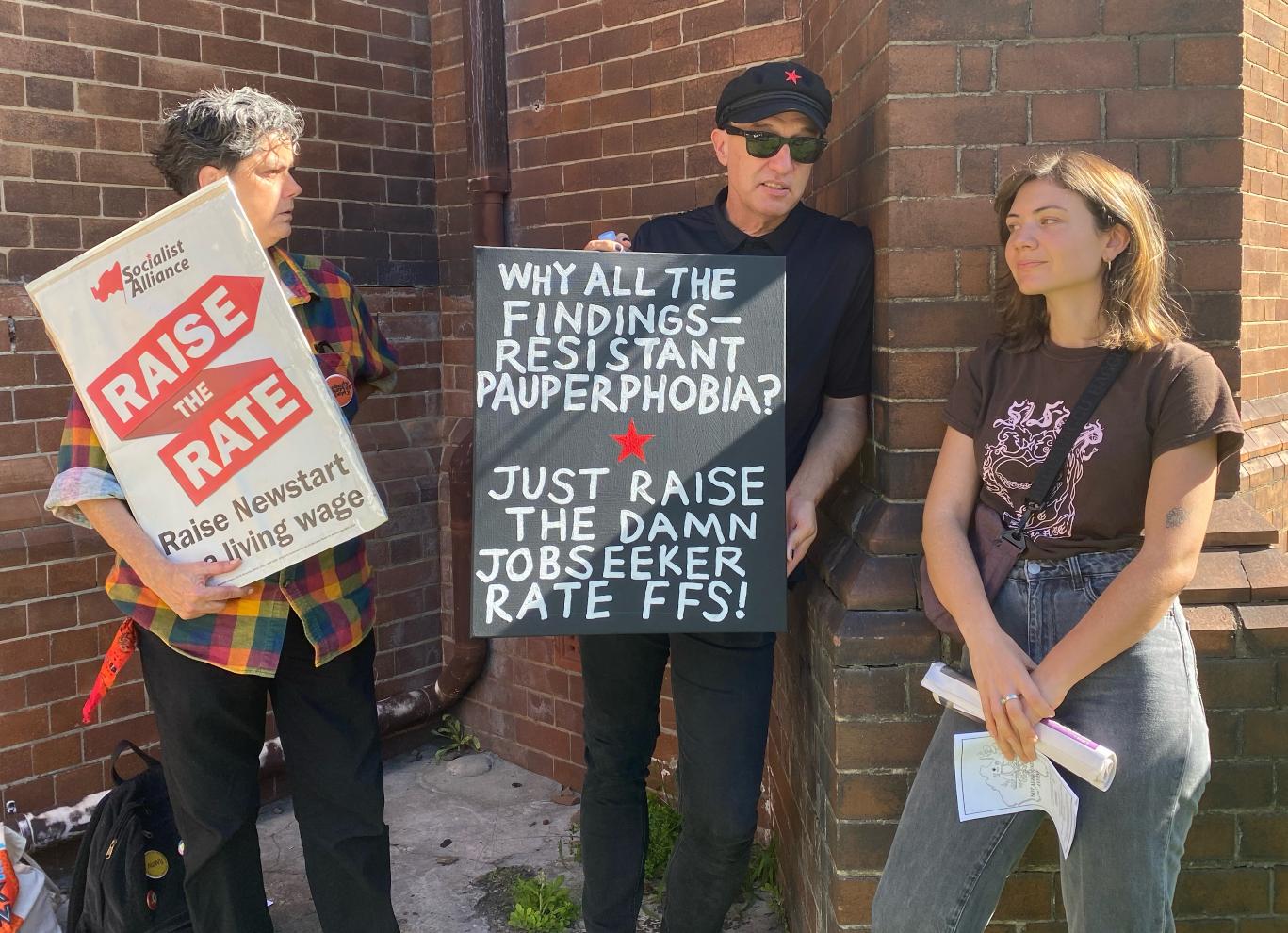
Raise the Rate – not a tough choice, but the right choice

Image: Photo: Wendy Bacon.
By WENDY BACON
Anti-poverty protesters chose the Prime Minister’s own office in Marrickville for a rally on Friday (April 28) to demand the Albanese Labor government raise the rate of JobSeeker and Youth Allowance above the poverty line.
With the Budget to be released on May 9, pressure is building on the Albanese government to stand by their previous support for raising the rate.
Organisers from the Australian Unemployed Workers’ Union (AUWU) and the Anti-Poverty Centre highlighted the hypocrisy of Labor ministers by holding signs quoting the politicians’ previous statements in support of raising the income support rate made before Labor won last year’s election.
AUWU Jeremy Poxon told the crowd that when he was in opposition, Albanese said the JobSeeker rate was “unliveable” and that “nobody can live on $40 a day”. Since Albanese made these comments the cost of living has increased and rents have spiralled. The current JobSeeker rate is $693.10 a fortnight for a single person with no children which works out to approximately to $49 a day.
“This government thinks it can say one thing in opposition, and then come out and starve millions of people on welfare,” Poxon said. “It’s a national disgrace.”
Another speaker quoted the Minister for Social Services Amanda Rishworth’s accusation that the Morrison government lacked empathy for allowing Newstart (now called JobSeeker) to stagnate below the Poverty Line. (See below)

The only politician to attend the rally was the Deputy Leader of the Greens Senator for NSW Mehreen Faruqi. “They tell us that they have to make tough choices at this budget. But the fact is that it is people like you who have to make tough choices. People every single day have to choose between putting food on the table or buying medicines, choose between turning the heater on in freezing cold or paying the rent,” she said. “It’s absolutely unconscionable that this Labor government thinks it’s a good idea to give $254 billions of tax cuts to the wealthy and commits to $386 billion for war machines while refusing to raise …income support. Poverty is not inevitable …poverty is a political choice that governments make.”

The rally topped off a week of intense #RaisetheRate campaigning that included a huge media conference in Canberra on Wednesday at which a letter co-signed by 350 prominent people was released. It called for Albanese government to address deep seated structural inequality and raise the JobSeeker (now $49 a day) and Youth Allowance ($40 a day) to 90% of the Aged pension. It stated: “Even before the cost-of-living crisis, income support payments weren’t nearly enough to cover basic expenses, but now people struggling to get by on $50 a day face increased deprivation. In the last twelve months, rents in capital cities have risen by about 22 percent and food prices have skyrocketed. While everyone in our community is feeling the impact of these cost-of-living pressures, people on income support are going without food and other basics because they have nothing left to cut back on in their budget.”
The impressive coalition was put together by Australian Council of Social Services. The open letter followed the release of the report of the Economic Inclusion Advisory Committee. The government established the Committee in exchange for ACT Independent Senator David Pocock’s vote for its Labor’s Industrial Relations legislation.










